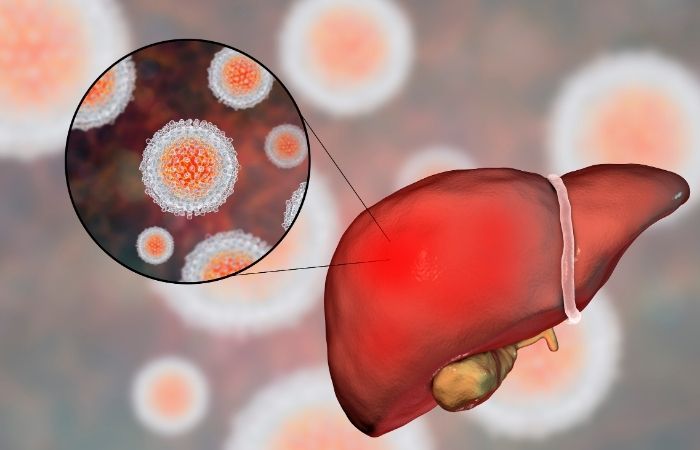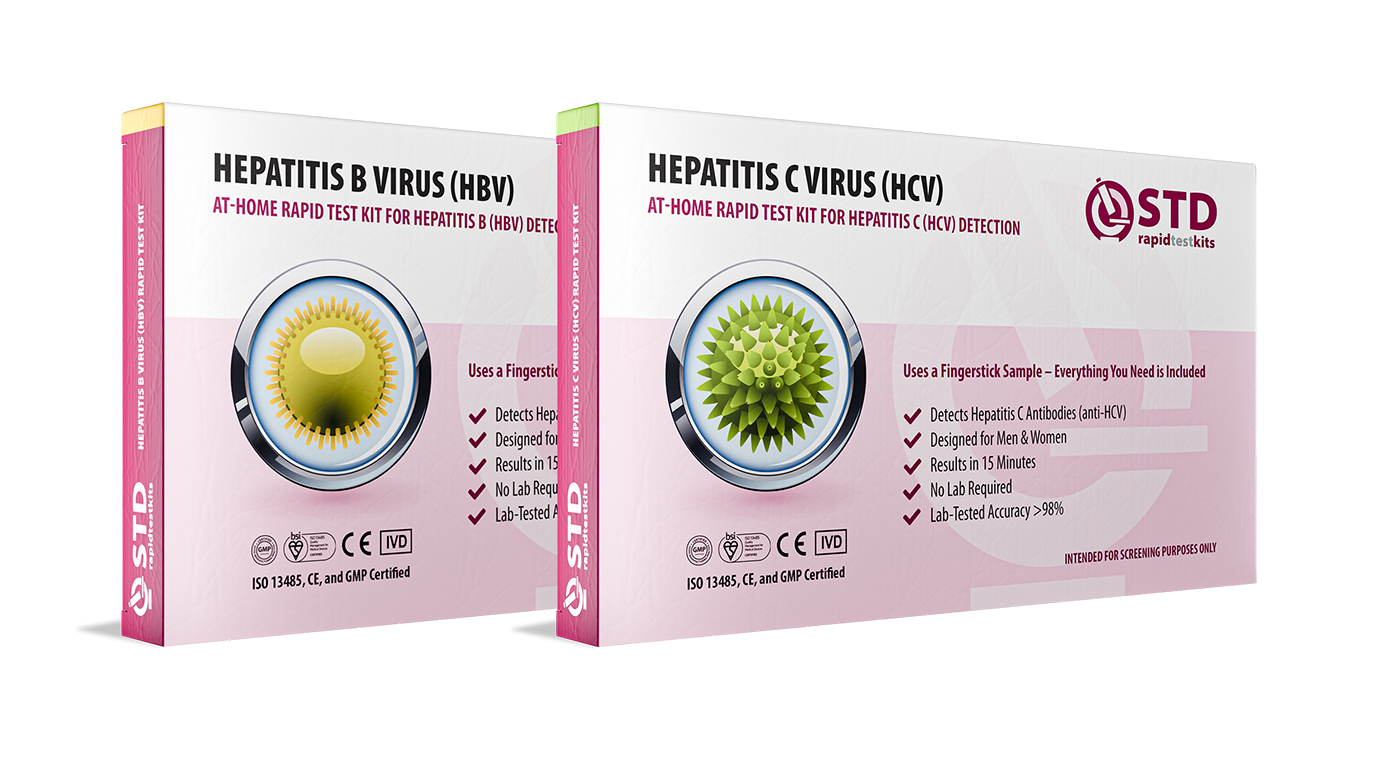Quick Answer: Yes, you can have Hepatitis B without realizing it. Many people are asymptomatic, and the virus spreads through blood, sexual fluids, and perinatal exposure. Vaccination is highly effective in preventing infection.
“I Had No Idea”: Real Stories of Silent Hepatitis B
Marcus, 32, thought his fatigue was just from juggling work and his weekend soccer games. He didn’t get tested until a new partner suggested they both do a full panel. The result? He was a Hepatitis B carrier, and he had no symptoms at all. His liver enzymes were slightly elevated, but his life looked completely normal from the outside.
“I was shocked,” Marcus said. “I hadn’t done anything ‘risky’ in years. I never imagined I could be carrying a virus that serious.”
His story isn’t rare. According to the World Health Organization, an estimated 296 million people live with chronic Hepatitis B worldwide, and most of them are unaware. This virus is sneaky: the incubation period can last 1 to 4 months, and many people never experience symptoms like jaundice or nausea at all.

People are also reading: The Most Common Sexually Transmitted Diseases and How They Spread
Why Hepatitis B Is a Master of Stealth
Here’s why people often catch Hepatitis B without realizing:
- Asymptomatic carriers: Up to 70% of acute adult infections may have no obvious symptoms.
- Subtle early signs: Mild fatigue, low fever, or nausea are easily dismissed as “just a cold” or stress.
- Long silent phase: The virus can quietly damage the liver before bloodwork or imaging reveals trouble.
The CDC notes that some people only discover their infection after routine blood work, pregnancy screening, or when a partner tests positive. Without awareness and testing, the infection can transition from acute to chronic silently, increasing the risk of cirrhosis and liver cancer down the line.
Unexpected Ways Hepatitis B Spreads
Most people know about sexual and needle‑related transmission, but everyday scenarios can catch people off guard:
- Shared personal items: Razors, toothbrushes, or nail clippers can carry microscopic blood.
- Unnoticed blood contact: Even small cuts can transmit the virus if blood is exchanged.
- Perinatal transmission: Babies can acquire Hepatitis B during birth if the parent is infected.
- Medical or cosmetic procedures: Tattoos, piercings, or dental work done in unsterile conditions carry risk.
Contrary to popular fear, you cannot get Hepatitis B from hugging, casual contact, or sharing utensils. But that half‑used razor at the Airbnb? That’s another story.
Check Your STD Status in Minutes
Test at Home with Remedium10-in-1 STD Test Kit

 For Women
For Women Results in Minutes
Results in Minutes No Lab Needed
No Lab Needed Private & Discreet
Private & DiscreetOrder Now $189.00 $490.00
For all 10 tests
Why Vaccination Changes Everything
If Hepatitis B is the stealth virus of the sexual health world, the vaccine is your ultimate shield. It’s not just “pretty effective”, it’s a powerhouse. The CDC confirms that the three‑dose series provides 98–100% protection in healthy adults and almost completely prevents perinatal transmission when given to newborns alongside immune globulin.
Here’s the magic of vaccination:
- Prevents silent infection: No matter how subtle the exposure, the immune system is ready.
- Protects for decades: Most vaccinated people remain immune for life, even without boosters.
- Stops community spread: High vaccine coverage creates a “safety halo,” lowering prevalence.
Without vaccination, the virus can hide in plain sight. With it, you turn your body into a no‑entry zone for Hepatitis B. That peace of mind? Priceless.
Case Study: The Party, the Razor, and the Positive Test
Selina, 27, was the life of every house party. At one sleepover, she borrowed a friend’s razor. Months later, during a routine STD panel, she learned she had Hepatitis B. Her only symptom had been “feeling a little run‑down.”
“I thought I was just stressed,” she said. “I didn’t even remember sharing that razor until the nurse asked.”
This is where the silent spread meets stigma. Selina was mortified, fearing her friends would judge her. But her nurse reminded her:
- Most adult cases clear on their own, but testing is key.
- Even symptom‑free carriers can transmit the virus.
- Getting vaccinated afterward ensures lifelong protection.
Selina’s story is common and underlines the importance of discreet testing. If you’re reading this with a knot in your stomach, you can get answers without leaving home. STD Rapid Test Kits offers confidential Hepatitis B tests and combo kits that check multiple STDs at once.
How Hepatitis B Can Linger Without You Knowing
Once Hepatitis B enters the body, the virus targets liver cells. Here’s the breakdown:
- Incubation phase: 1–4 months where you feel normal, but viral replication is active.
- Silent acute infection: 50–70% of adults never notice symptoms like jaundice or abdominal pain.
- Chronic stage risk: Around 5–10% of adults and up to 90% of infected infants develop lifelong infection.
Chronic carriers can unknowingly pass the virus through blood or sexual contact, even if they’ve never been sick. This is why testing and vaccination remain the twin pillars of Hepatitis B prevention.

People are also asking: What Is Herpes?
Breaking the Stigma: You’re Not Dirty, You’re Human
Let’s get real: the fear of being “labeled” keeps too many people from getting tested for Hepatitis B. It’s one of those infections that lives in the shadows, not just in the body but in society’s imagination. People whisper it like a dirty word, even though it’s often spread by completely ordinary human behavior, sharing a razor, getting a piercing, being born to an infected parent.
“I felt ashamed, like I’d done something reckless,” admits Jamie, 24, who learned they were a chronic carrier during a college health screening. “But then I found out I probably got it at birth. That changed everything about how I saw myself.”
Shame is a virus all its own. Stigma can stop people from seeking testing, which leads to more silent carriers and more transmissions. That’s why sexual health experts emphasize three things:
- Get tested, even if you feel fine: Silence doesn’t equal safety.
- Talk openly with partners and doctors: Knowledge is protection.
- Normalize vaccination: It’s not a moral judgment, it’s smart prevention.
The truth? You’re not “dirty.” You’re proactive and responsible just for reading this article. And that already makes you safer than most people.
Sex‑Positive, Judgment‑Free Testing
Whether you’ve had one partner or twenty, whether your last hookup was a romantic weekend or a chaotic festival bathroom, you deserve clarity without judgment. Hepatitis B testing is quick, private, and life‑changing.
You can test in three ways:
- Clinic testing: Fast, often covered by insurance, with professional counseling.
- Doctor‑ordered labs: Great if you need formal records or follow‑up.
- At‑home test kits: Discreet, accurate, and empower you to act privately.
Choosing an at‑home combo STD test kit can give you answers without stepping into a waiting room. And if you’re negative? Vaccination locks that door for good.
Action Steps: Take Control of Your Health
Finding out about Hepatitis B, or just worrying you might have it, can be overwhelming. Here’s your doctor‑meets‑friend, step‑by‑step game plan:
- Step 1: Get tested. Know your status, even if you have zero symptoms.
- Step 2: If negative, get the Hepatitis B vaccine series to prevent future infection.
- Step 3: If positive, follow up with your doctor. Many adult infections clear naturally, and treatment exists for chronic cases.
- Step 4: Communicate with partners without shame. “I got tested” is a statement of care, not guilt.
This isn’t about fear. It’s about freedom, knowing the truth, protecting yourself, and moving through the world without the weight of “what if?”
The Global Picture: Why Hepatitis B Still Matters
It’s easy to think of Hepatitis B as something that happens to “other people,” or as a virus that went out of style with disco. But the truth is stark: the World Health Organization estimates 296 million people worldwide are living with chronic Hepatitis B. That’s nearly the population of the entire United States living with a virus that many of them don’t even know they have.
Here’s why it still matters today:
- Liver health risks: Chronic Hepatitis B can silently lead to cirrhosis or liver cancer, often after years without warning signs.
- Global inequity: In parts of Africa and Asia, vaccine coverage is lower, and vertical (mother‑to‑child) transmission is a major driver of chronic infections.
- Silent local burden: Even in countries with vaccines, adults born before routine immunization may still carry the virus unknowingly.
Despite decades of progress, the virus thrives in silence, especially where stigma and lack of testing persist. Knowing your status and advocating for vaccination isn’t just self‑care, it’s a small but vital act of public health protection.
Check Your STD Status in Minutes
Test at Home with RemediumHepatitis B & Hepatitis C Test Kit

 For Men & Women
For Men & Women Results in Minutes
Results in Minutes No Lab Needed
No Lab Needed Private & Discreet
Private & DiscreetOrder Now $49.00 $98.00
For all 2 tests
Myth‑Busting Hepatitis B Transmission
If Hepatitis B had a PR problem, it would be the mountain of myths surrounding it. These misconceptions fuel anxiety and stigma, and sometimes cause people to worry about the wrong risks while ignoring the real ones. Let’s clear the air:
- Myth: “You can get Hepatitis B from hugging or sharing utensils.” Reality: No. The virus requires blood or sexual fluid exposure. Hugs, kisses on the cheek, and shared meals are safe.
- Myth: “Only people who use drugs or have lots of partners get Hepatitis B.” Reality: Not true. Household transmission via razors or perinatal transmission are common. Hepatitis B doesn’t discriminate.
- Myth: “If I don’t feel sick, I can’t spread it.” Reality: False. Asymptomatic carriers can still transmit the virus. Silent spread is why screening and vaccination are essential.
- Myth: “I got the vaccine once, so I’m covered forever.” Reality: For most healthy adults, yes. But rare breakthrough infections can occur, and completing the full series is crucial for lifelong immunity.
Clearing these myths isn’t just about accuracy, it’s about empowerment. When we understand how Hepatitis B really spreads, we make smarter choices without the weight of unnecessary fear or shame.
FAQs
1. Is it possible to get Hepatitis B without showing any symptoms?
Yes. A lot of people don't show any symptoms of Hepatitis B in the early or even chronic stages.
2. Can kissing spread Hepatitis B?
It's very unlikely. Hepatitis B spreads mostly through blood and sexual fluids, not by touching saliva.
3. How long can Hepatitis B stay alive outside of the body?
The virus can live on surfaces like razors or clippers for up to seven days after blood has dried.
4. Can you get rid of Hepatitis B?
There is no cure, but many acute infections go away on their own, and treatments can help with chronic cases.
5. Can people who have had the vaccine still get Hepatitis B?
Very few times. In healthy adults, the vaccine works 98–100% of the time.
6. If I don't have any symptoms, do I need to get tested?
Yes. Silent infections are common, but finding them early stops them from spreading and hurting the liver.
7. How do babies get Hepatitis B?
If the parent is infected and not treated, the baby can be exposed during birth.
8. Can I get Hepatitis B by eating or drinking with someone?
No. You can't get hepatitis B from touching someone, eating with them, or using the same dishes.
9. What should I do if I think I was exposed?
Get tested right away and ask about vaccination and post-exposure prophylaxis.
10. If I practice safe sex, why do I need to get vaccinated?
Hepatitis B can spread through other things, like razors, medical procedures, or giving birth.
You Deserve Answers, Not Assumptions
Hepatitis B’s silence is what makes it dangerous, but knowledge flips the script. Testing, vaccination, and open conversations let you take back control. Whether your story sounds like Marcus, Selina, or Jamie, you’re not alone, and you’re not dirty. You’re human, and you deserve clarity.
Don’t wait and wonder, get the clarity you deserve.
Sources
1. CDC: Hepatitis B Surveillance & Case Management (undetected chronic carriers & unaware transmission)
2. Hepatitis B Foundation: Common Transmission Routes & How infection happens unknowingly
3. WHO: Hepatitis B Facts on silent infection, perinatal spread, and lack of symptoms
4. Verywell Health: Being a Carrier – Chronic HBV without symptoms but still infectious
5. NCBI Bookshelf: Knowledge & awareness gaps – why many risk unknowingly










